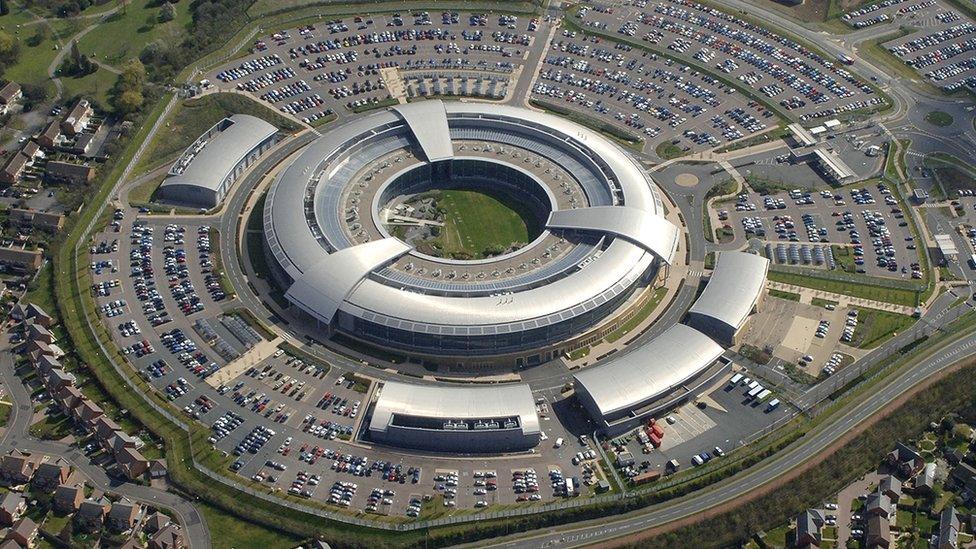Why GCHQ needs to fix its diversity problem
- Published

GCHQ says it is committed to attracting a more diverse workforce
If GCHQ's workforce were truly representative of Britain's makeup, about 12% of staff would be from ethnic minorities. But it is not even a quarter of that, an issue the intelligence agency says it wants to address.
Why do the security services need a diverse workforce?
The British intelligence apparatus has done a fairly good job so far of foiling 12 attempts by militants to attack this country since 2013 alone, not to mention tackling the organised criminals and a whole array of grade-A miscreants who wish to undermine our way of life.
So why would the intelligence services, including GCHQ, need to resemble a rainbow nation of operatives, with people of all colours and religions mingling freely?
Well, it seems that they are taking the issue of diversity within their ranks very seriously indeed.
And this has nothing to do with political correctness and everything to do with operational effectiveness.
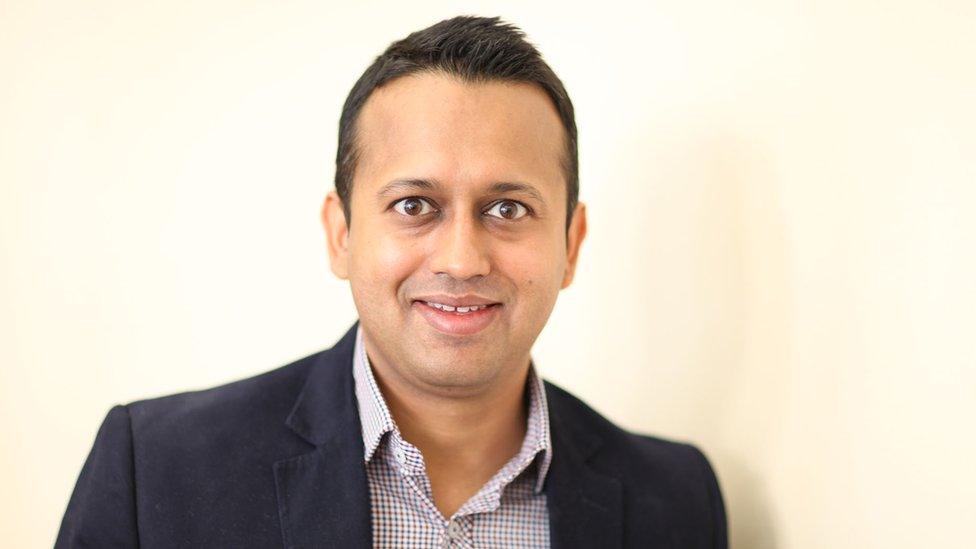
GCHQ's Nikesh Mehta admits the workforce is not as representative as it should be
"This isn't a moral imperative. This is a business critical thing that we need," says Nikesh Mehta, a GCHQ deputy director.
A fairly recent recruit from the Foreign Office, Mr Mehta is the most senior appointment across the security services from what is known as the Black, Asian and minority ethnic (BAME) communities.
"It's important for GCHQ that we recruit people from all sorts of diverse backgrounds," he says.
"We need people that can think differently to solve really difficult problems.
"When you talk about Daesh [IS] and the way in which they recruit and radicalise people, you need analysts who are able to think about the problems of tackling these issues."
So that is the security services' argument, but why is the intelligence community still so white, and why do so few members of ethnic communities think of signing up?
Tension
I am not sure that many school-based career advisers ask little Sanjay or Aisha when they are choosing their GCSEs if being a spy has ever crossed their minds.
There is also a trust deficit to contend with, plus potentially a misunderstanding of the role of an entity like GCHQ.
If you feel truly British, then surely you would want to do what you could to protect this country, wouldn't you?
But what if you felt as though the security services were using their powers to spy on your community as a means to undermine its reputation, as part of an attack on Islam?
It is an issue often raised by callers to my radio programme on the BBC Asian Network.
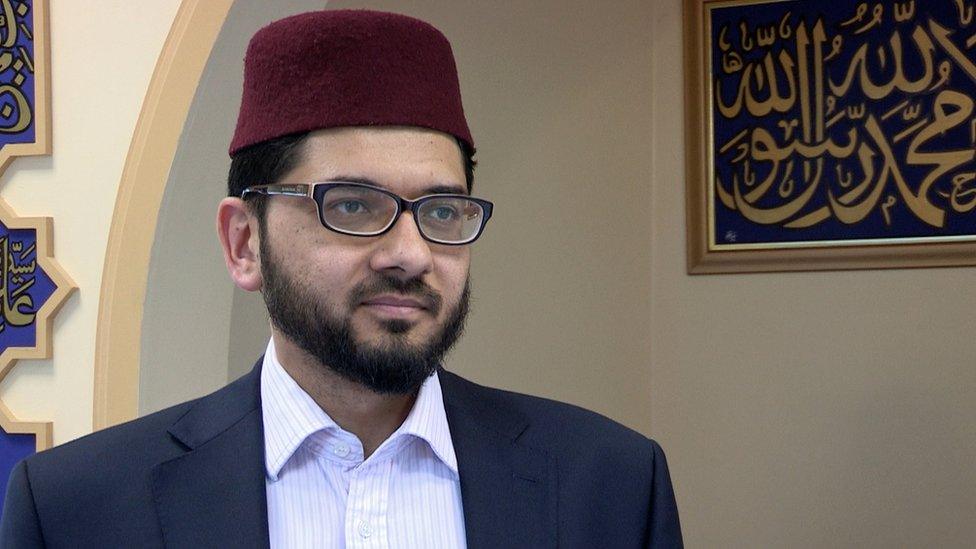
Imam Qari Asim says Muslims who work for the security services can attract suspicion
Some would certainly agree with Raza Khan, 19, who is studying English at Leeds University.
"We are ethnic minorities, we have to stay together," he tells me.
"If you join the establishment, you will be - not traitorous - but you would be ostracised from the group.
"If it was the police or fire or ambulance, that would be absolutely fine.
"If it was a service that you know would eventually be involved in attacking Muslims overseas or in Britain, then you wouldn't even entertain the thought of it."
It is a tension acknowledged by senior imam Qari Asim.
"I think if people found out that someone was working for the security services, people would be wary of that person," he says.
"We have had in the past certain people being asked to join the security service to spy on their friends or community members, and that's the wrong approach."
As I alighted at Cheltenham Station on a warm summer's day, it didn't seem to be a place that had embraced the idea of multiculturalism.
In fact it was so mono-cultural, it may as well have been dipped in Tippex.
Travelling across this country has taught me that you will always find someone from an ethnic minority in one of four places: a taxi, a pharmacy, a corner shop or a restaurant, and we found a Pakistani driver to take us to GCHQ.

Find out more
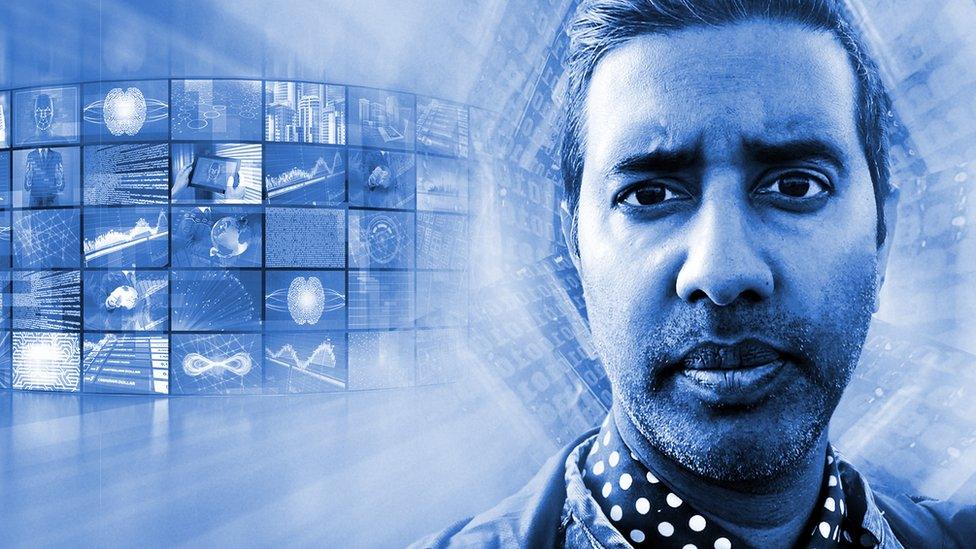
Nihal presents GCHQ: Minority Report on BBC Radio 4 on Tuesday 22 November at 20:00

From the outside, it is a forbidding place, with a triple layer of security, massive fences, razor wire and cameras covering every angle.
Inside, after a brief interaction with some very cheery security guards, we were introduced to a steady stream of the organisation's BAME staff.
They shared the reasons why they joined, how they kept the truth about the nature of their work from their nearest and dearest, and what they felt about GCHQ as a place to work.
They were exceptionally normal, which may seem like a strange thing to say.
I am not naive enough to think I would be presented with 50 shades of Daniel Craig, but none seemed to be infused with a righteous zeal, or steely patriotism.
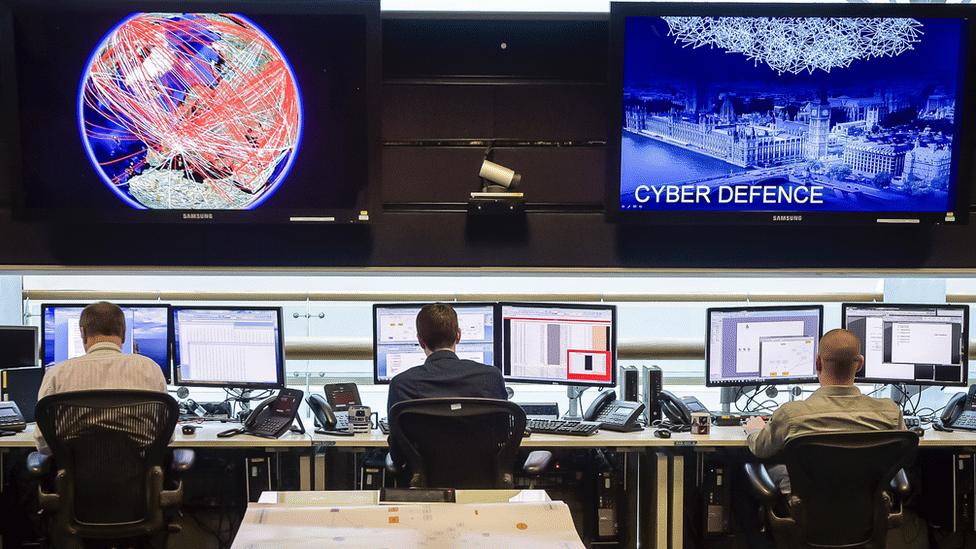
GCHQ is keen to be more open about what happens behind the doors of the agency
I asked one young man whether he thought of his employment as a betrayal of fellow Muslims. His response was succinct. "We are here to catch criminals," he said.
All the BAME staff I put this question to responded in the same way.
Software engineer "Raj" has been with GCHQ for eight years and said he "definitely" saw more people from a similar background to his own in the organisation now.
He also said the betrayal question "hasn't crossed my mind".
Another man I met, a Sikh who works as a language analyst, was also robust in defending his employer.
"There's never been a real issue for me about, 'Oh am I spying on my community?' or 'How would they feel about that?' because what we do here is for the benefit of the British and the rest of the world, so there is no moral dilemma," he said.
'Talent and commitment'
After meeting the troops, I also got to meet the head honcho, GCHQ director Robert Hannigan.
I wanted to gauge whether all this talk of diversity and inclusion was a superficial press release from up on high, or whether the man at the top was fully engaged and understood the importance of it for the security of the nation.
After sitting with him for nearly an hour in a non-descript meeting room in an anonymous building in a secret location, I certainly got the sense that the latter was the case.
"I completely understand that communities that haven't had much experience of working in the security and intelligence agencies will be nervous about [what we do]," he told me.

Can you crack GCHQ's code?

Pit yourself against a GCHQ puzzle with a special code-breaking quiz devised to coincide with the programme
The answer will be published after broadcast

He was at pains to clarify that this was not about recruiting more Muslims to catch more Islamists, explaining that the threats facing this country are broad and constantly evolving. Recruiting from a narrow section of society makes no sense.
"We have people of all religions in GCHQ - Muslims, Christians, Jews, people of no religion," he said.
"We value the diversity and the depth and the experience they bring with them.
"What we want is their talent and their commitment to the mission of keeping the UK and their fellow citizens - their communities, their families, their friends - safe."
Much of what Mr Hannigan said was straight out of the Diversity Textbook for Public Bodies, if such a tome exists.
Yet in dealing with the threats we face, many of which we will never even know have been foiled, his organisation's need to be more diverse could be of critical importance.
GCHQ: Minority Report is on BBC Radio 4 on Tuesday 22 November at 20:00. You can listen via the Radio 4 website or or download the podcast.
- Published8 June 2016
- Published16 May 2016
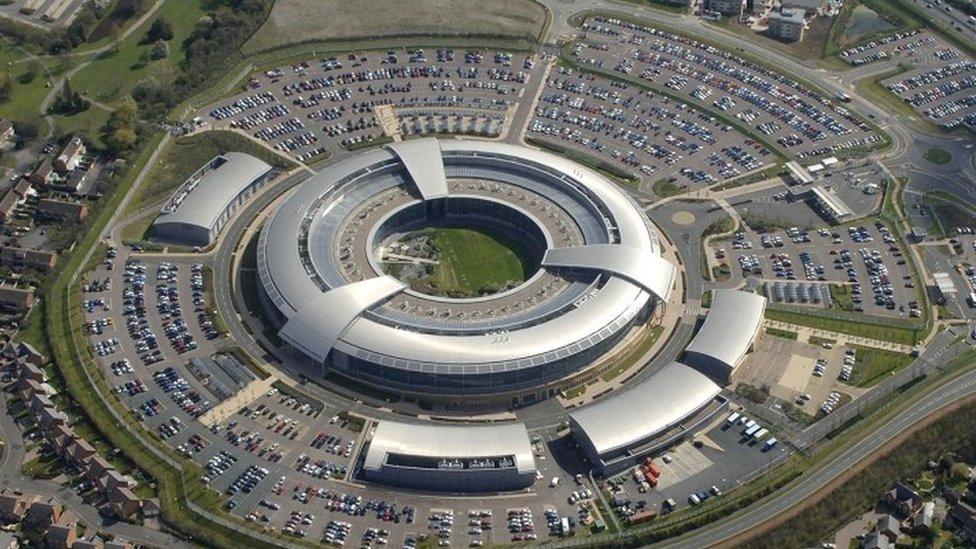
- Published16 April 2016

- Published28 January 2016

- Published19 January 2016
